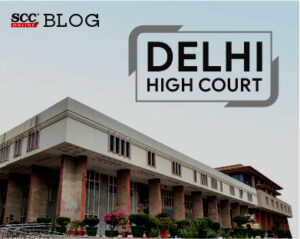Delhi High Court : In a Public Interest Litigation filed by social activist and former Chairman of Delhi Commission for Safai Karamcharis for directing the Government of Delhi to fulfill their responsibilities towards sanitation workers, the Division Bench of Satish Chandra Sharma, CJ. and Subramonium Prasad, J. directed the Government of NCT of Delhi to strictly comply with the provisions of the Prohibition of Employment as Manual Scavengers and their Rehabilitation Act, 2013.
Background
Petitioner who was a social activist and former Chairman of Delhi Commission for Safai Karamcharis filed a Public Interest Litigation which showed concerns in respect of sanitation workers and prayed before this Court to direct respondents for the following:
-
To act and fulfil their responsibilities enshrined under Constitution of India, 1950, National Commission for Safai Karamcharis Act, 1993 and the Prohibition of Employment as Manual Scavengers and their Rehabilitation Act, 2013.
-
To adhere to the Technical Brief and Interim Guidance issued by World Health Organization (WHO).
-
To provide health insurance and medical facilities to all sanitation workers and their families.
National Commission for Safai Karamcharis (NCSK) (Respondent 2) and Union of India (Respondent 3) filed a counter-affidavit stating that the NCSK was constituted in 1994 and was a statutory body under National Commission for Safai Karamcharis Act, 1993 up to 1997. Thereafter, the validity of the NCSK was extended and it again lapsed in 2004. Further, it was stated that now the NCSK was acting as a non-constitutional, non-statutory and non-permanent body under the Ministry of Social Justice and Empowerment and the tenure of the NCSK was till 2022. It was also stated that ‘Sanitation’ was a State Subject and the concerned State had to constitute relevant State Commission. Therefore, for Delhi, the Delhi Commission for Safai Karamcharis (DCSK) was in force to safeguard the rights and interests of Safai Karamcharis.
Respondents also stated that the petitioner had initially moved a petition in 2020 but the same was disposed of by the Supreme Court in Harnam Singh v. Union of India, 2020 SCC OnLine SC 449, wherein it was observed that Union of India had accepted that WHO guidelines for provisions of safety equipment to sanitation workers were binding on India and were being strictly followed.
Further respondents stated that “they had furnished details of safeguards/ measures taken by the Government for providing appropriate logistics, that is, necessary protective gear. Further, the respondents have furnished details of sanitation training to Safai Karamcharis, their vaccination, and their residential arrangement. It had been stated that the benefits given to Health Care Workers were also extended to Safai Karamcharis deployed in Delhi Government Health Institutions without any discrimination in relation to providing safety kits, transportation facilities, lodging facilities, food facility, etc. It has also been stated that proper specific precautions were being undertaken for disposal of bio-medical waste and the State Government was strictly adhering to the statutory provisions as contained under the provisions of the Prohibition of Employment as Manual Scavengers and Their Rehabilitation Act, 2013, and the Rules framed thereunder. The respondents have stated that the statutory provisions were being followed, compensation was being paid and the Government had ensured that all equipment’s – as provided for under the Act and the Rules framed thereunder, were being provided to the Safai Karamcharis.”.
Analysis, Law, and Decision
The Court noted that DCSK was in existence and NCSK was investigating, examining, and monitoring all matters related to the safeguards to be provided to Safai Karamcharis residing in Delhi as was provided under the Prohibition of Employment as Manual Scavengers and their Rehabilitation Act, 2013 and Constitution of India, 1950. The Court opined that DCSK was discharging its responsibilities and the Government of NCT of Delhi did not have any other choice except to implement the statutory provisions as contained under the provisions of Prohibition of Employment as Manual Scavengers and Their Rehabilitation Act, 2013 and the Rules framed thereunder.
The Court directed the Government of NCT of Delhi to ensure strict compliance of the statutory provisions contained in the Prohibition of Employment as Manual Scavengers and their Rehabilitation Act, 2013.
[Harnam Singh v. Government of NCT of Delhi, 2022 SCC OnLine Del 4052, decided on 25-11-2022]
Advocates who appeared in this case:
For the Petitioner(s) : Advocate Mehmood Pracha;
Advocate Sanawar;
Advocate Jatin Bhatt;
For the Respondent(s) : ASC Satyakam;
CGSC Anil Soni;
Advocate Shubhra Parashar;
Advocate Virender Pratap Singh Charak;
Advocate Rahul Mourya.

